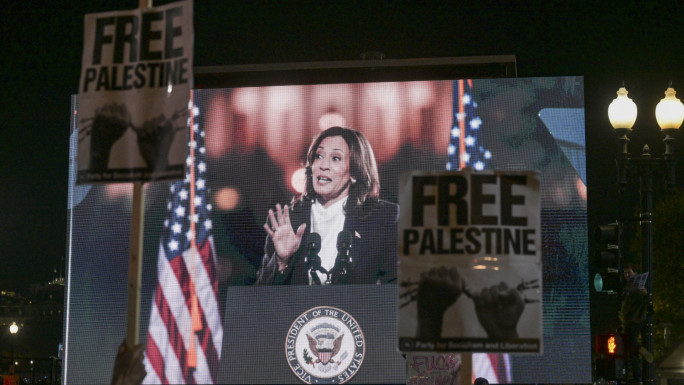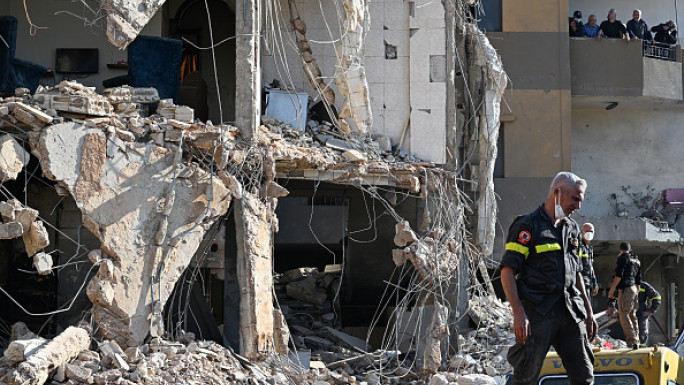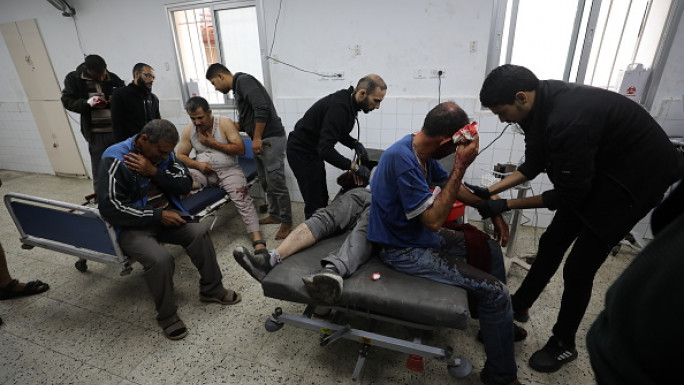Leak confirms Israel assassinated senior Syrian official
Leak confirms Israel assassinated senior Syrian official
Analysis: A document leaked by Edward Snowden has confirmed suspicions that Israel assassinated Mohammad Suleiman, a senior Syrian official, in 2008.
3 min read
Sulieman was assassinated at his beach house on the Syrian coast near Tartous [Getty]
A NSA document leaked by Edward Snowden has confirmed, for the first time, that Israeli commandos carried out the 2008 assassination of a senior Syrian official at his beachfront home in Syria's Tartous.
General Muhammad Suleiman was killed by shots that hit him in the head and neck, apparently fired from the sea, while he was at home in his chalet in the al-Rimal al-Zahabiya ["Golden Sands"] beach resort near Tartous, on 1 August 2008.
Israel has never officially admitted responsibility for Suleiman's assassination.
At the time, there was speculation it was part of an internal power struggle within the regime.
The information was revealed in a document that appears to have been taken from the US National Security Agency's (NSA) internal version of Wikipedia called Intellipedia, and leaked by former NSA contractor Edward Snowden.
According to The Intercept, an online publication focusing on the revelations in the documents released by Edward Snowden, the document is marked "SI" for Signals Intelligence, indicating that this information was collected by monitoring electronic communications.
The Jerusalem Post reported that Suleiman had been assassinated by Israel's amphibious special force "Shayetet 13" (Flotilla 13).
According to the Intellipedia document, Suleiman's assassination was the "first known instance of Israel targeting a legitimate government official".
"The Israelis may have had many good reasons to kill [Suleiman], but under international law it's absolutely clear that in Syria in 2008... they had no right to kill General Suleiman," Mary Ellen O'Connell, a professor of international law at Notre Dame University, told The Intercept.
Bashar's inner circle
Suleiman was a high-ranking general reportedly close to Syrian President Bashar al-Assad himself. A 2007 cable from the US Embassy in Damascus describes him as a "Special Presidential Advisor for Arms Procurement and Strategic Weapons".
Israeli and Syrian opposition sources claimed he was the Syrian liaison between the Syrian regime and the Lebanese Hezbollah movement. Before the Syrian war, Hezbollah is believed to have received shipments of weapons from Iran via Syria, and its members are also believed to have received training in Syria.
Hezbollah leader Hassan Nasrallah said last year that the Israeli government killed Suleiman because of his role in the 34-day war between Israel and Hezbollah in July 2006.
The war was widely seen as an embarrassment for Israel, as it failed to inflict significant damage on Hezbollah or its military infrastructure in Lebanon, but inflicted extensive damage on Lebanon's infrastructure and killed more than 1,000 Lebanese civilians.
There is speculation that Suleiman was also involved in Syria's alleged nuclear programme. In September 2007 Israeli warplanes destroyed what was reported to be a nuclear reactor in al-Kibar in eastern Syria.
Suleiman's assassination came almost six months after the assassination of Imad Mughniyah in Damascus in a joint operation between the CIA and Israel's Mossad. Mughniyah was a senior Hezbollah military commander implicated in the 1983 bombing of the US embassy in Beirut in which 63 people died, and possibly also the bombing of the US Marine barracks the same year, which killed 241 sailors.
According to a US diplomatic cable from 2009, $80 million in cash was found in Suleiman's home after his death.
Assad was reportedly unhappy with this discovery and wanted to know how Suleiman came into the possession of so much money. It is unclear if this sum was related to Suleiman's role as an intermediary with Hezbollah or if it had been acquired illicitly.
General Muhammad Suleiman was killed by shots that hit him in the head and neck, apparently fired from the sea, while he was at home in his chalet in the al-Rimal al-Zahabiya ["Golden Sands"] beach resort near Tartous, on 1 August 2008.
Israel has never officially admitted responsibility for Suleiman's assassination.
At the time, there was speculation it was part of an internal power struggle within the regime.
The information was revealed in a document that appears to have been taken from the US National Security Agency's (NSA) internal version of Wikipedia called Intellipedia, and leaked by former NSA contractor Edward Snowden.
| Israel has never officially admitted responsibility for Suleiman's assassination. |
The Jerusalem Post reported that Suleiman had been assassinated by Israel's amphibious special force "Shayetet 13" (Flotilla 13).
According to the Intellipedia document, Suleiman's assassination was the "first known instance of Israel targeting a legitimate government official".
"The Israelis may have had many good reasons to kill [Suleiman], but under international law it's absolutely clear that in Syria in 2008... they had no right to kill General Suleiman," Mary Ellen O'Connell, a professor of international law at Notre Dame University, told The Intercept.
Bashar's inner circle
Suleiman was a high-ranking general reportedly close to Syrian President Bashar al-Assad himself. A 2007 cable from the US Embassy in Damascus describes him as a "Special Presidential Advisor for Arms Procurement and Strategic Weapons".
Israeli and Syrian opposition sources claimed he was the Syrian liaison between the Syrian regime and the Lebanese Hezbollah movement. Before the Syrian war, Hezbollah is believed to have received shipments of weapons from Iran via Syria, and its members are also believed to have received training in Syria.
Hezbollah leader Hassan Nasrallah said last year that the Israeli government killed Suleiman because of his role in the 34-day war between Israel and Hezbollah in July 2006.
The war was widely seen as an embarrassment for Israel, as it failed to inflict significant damage on Hezbollah or its military infrastructure in Lebanon, but inflicted extensive damage on Lebanon's infrastructure and killed more than 1,000 Lebanese civilians.
There is speculation that Suleiman was also involved in Syria's alleged nuclear programme. In September 2007 Israeli warplanes destroyed what was reported to be a nuclear reactor in al-Kibar in eastern Syria.
Suleiman's assassination came almost six months after the assassination of Imad Mughniyah in Damascus in a joint operation between the CIA and Israel's Mossad. Mughniyah was a senior Hezbollah military commander implicated in the 1983 bombing of the US embassy in Beirut in which 63 people died, and possibly also the bombing of the US Marine barracks the same year, which killed 241 sailors.
According to a US diplomatic cable from 2009, $80 million in cash was found in Suleiman's home after his death.
Assad was reportedly unhappy with this discovery and wanted to know how Suleiman came into the possession of so much money. It is unclear if this sum was related to Suleiman's role as an intermediary with Hezbollah or if it had been acquired illicitly.





 Follow the Middle East's top stories in English at The New Arab on Google News
Follow the Middle East's top stories in English at The New Arab on Google News


